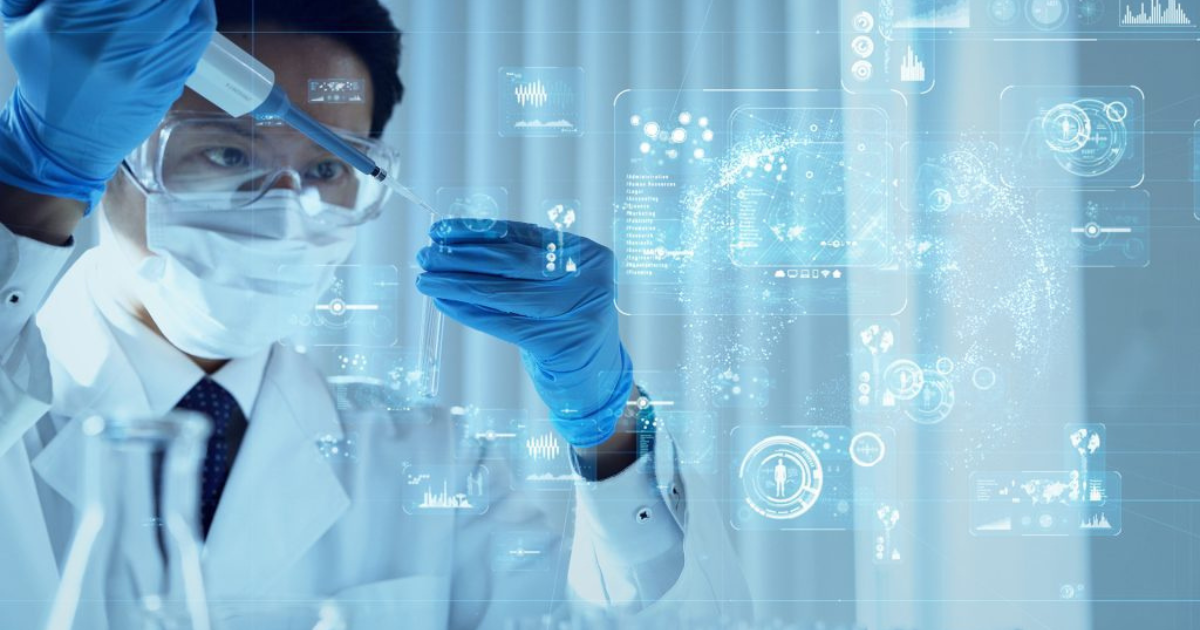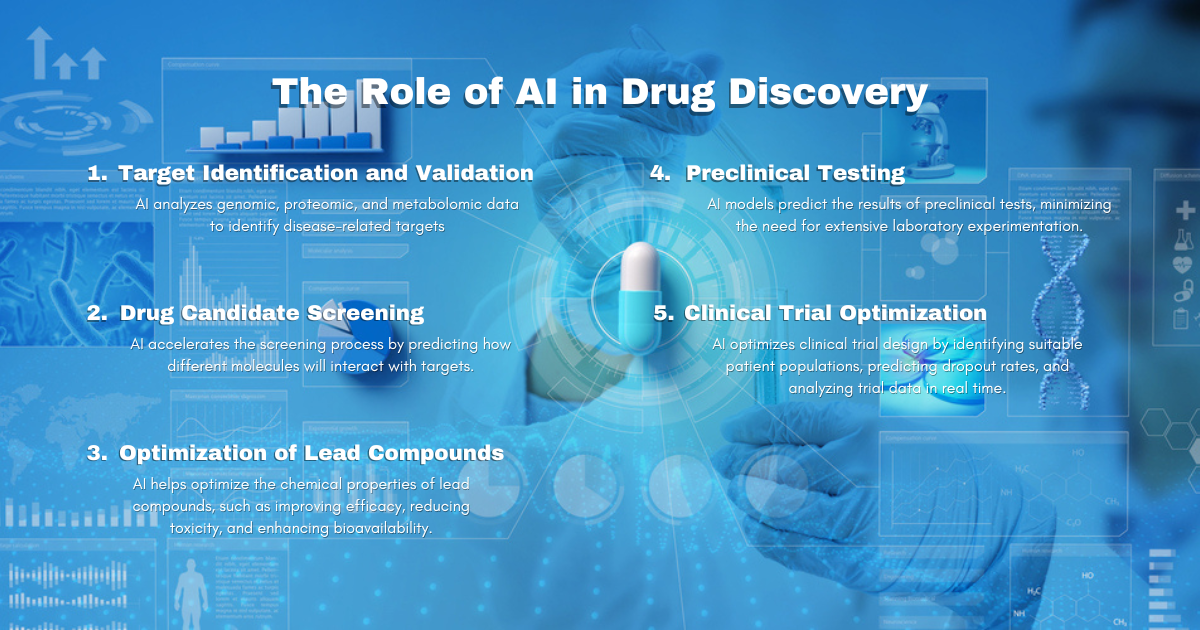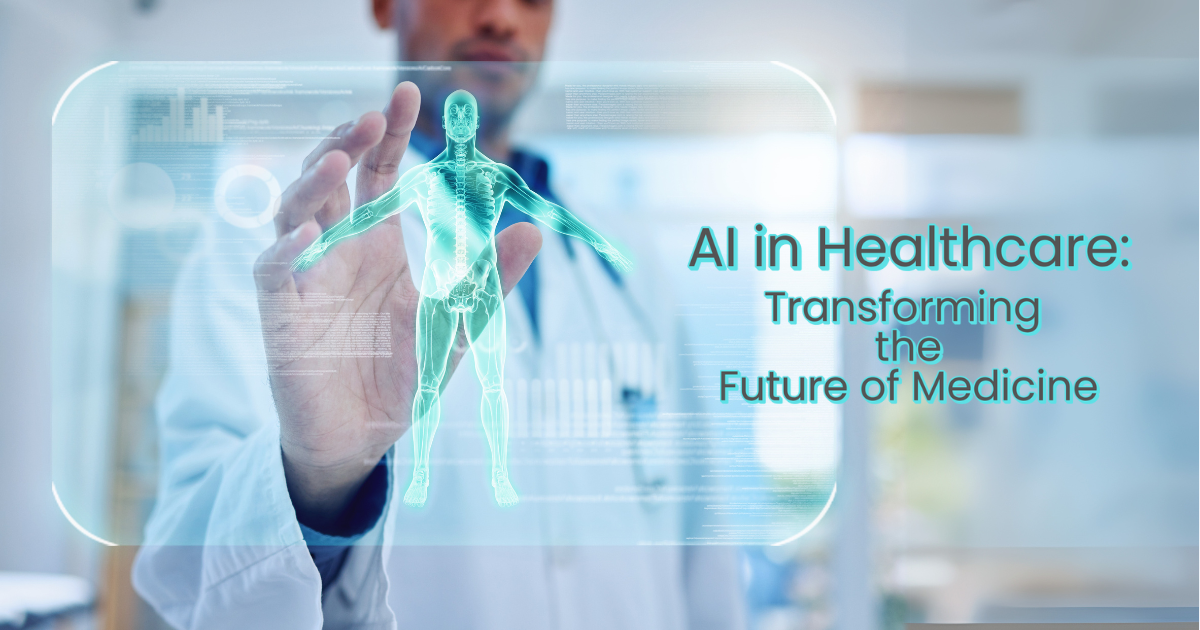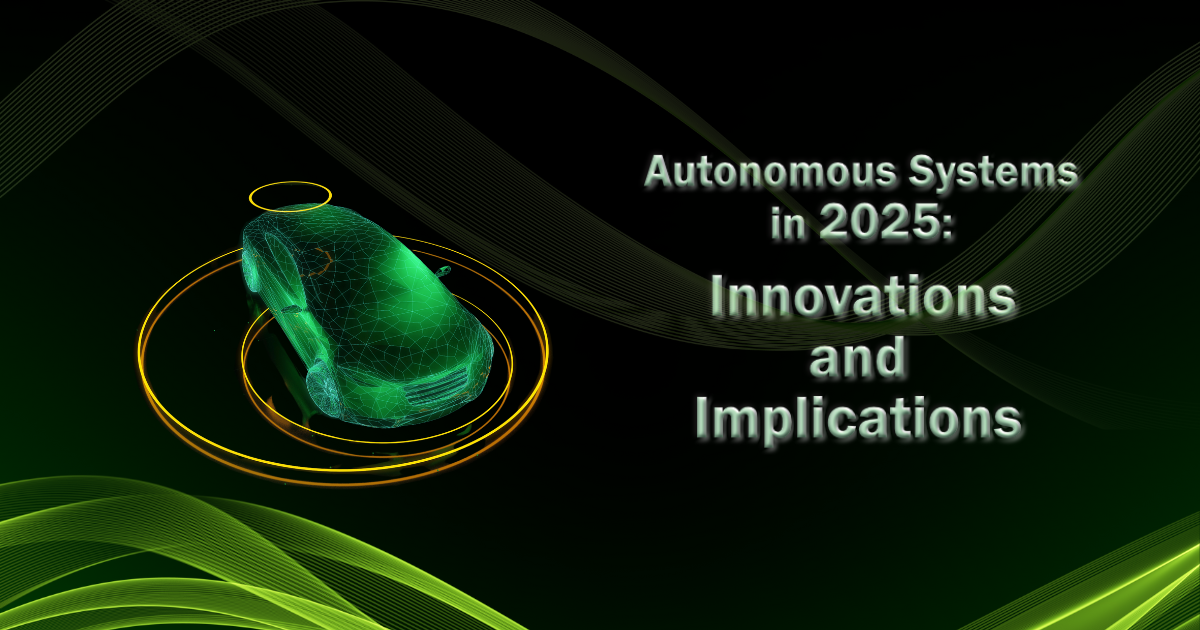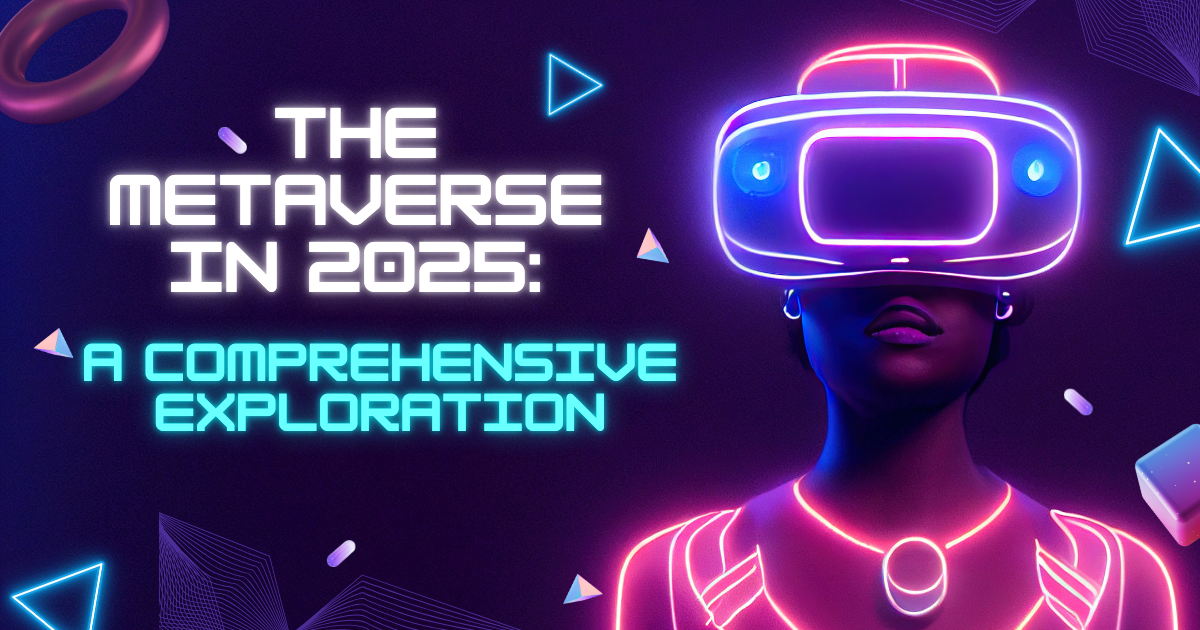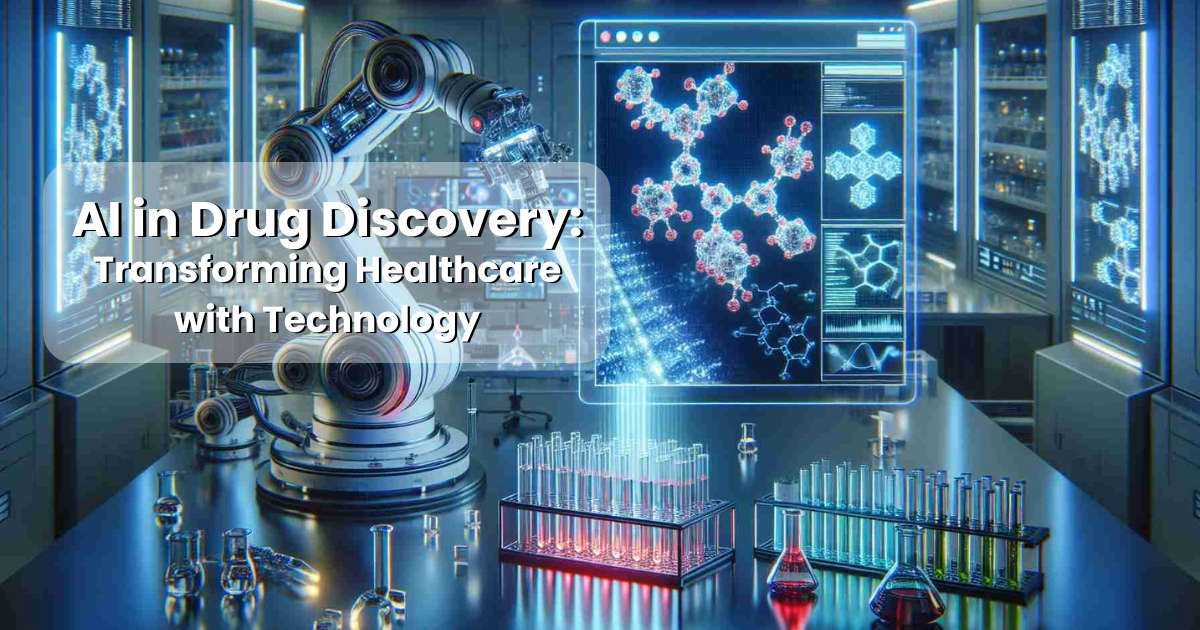
Artificial Intelligence (AI) is revolutionizing the drug discovery landscape, addressing longstanding challenges and bringing new possibilities to healthcare. Traditional drug discovery is a time-intensive and costly process, often taking over a decade and billions of dollars to develop a single medication. AI, with its ability to process vast datasets and predict outcomes with precision, is transforming this paradigm.
AI enhances and expedites every phase of the drug discovery process. In target identification, machine learning algorithms analyze biological data to pinpoint promising targets, reducing the uncertainty and time associated with traditional methods. For drug screening, AI systems rapidly evaluate millions of chemical compounds to identify candidates with high potential, eliminating the need for exhaustive manual testing.
Personalized medicine is another area where AI excels. By analyzing patient-specific data, such as genetic profiles and medical history, AI enables the development of tailored treatments. This not only improves efficacy but also minimizes side effects, marking a shift from one-size-fits-all approaches to precision healthcare.
AI also democratizes drug discovery for rare and neglected diseases. Traditional research often overlooks these areas due to limited market potential. However, AI’s efficiency and cost-effectiveness make it feasible to explore treatments for conditions that were previously deemed unprofitable.
The technology has already demonstrated its potential through success stories. Companies like Insilico Medicine and Exscientia have leveraged AI to design and identify drug candidates in record time, while BenevolentAI repurposed baricitinib for COVID-19, showcasing AI’s ability to address urgent health crises.
Despite its immense potential, AI in drug discovery encounters challenges such as ensuring data quality, addressing ethical concerns, and navigating complex regulatory landscapes. However, advancements in computational power and collaborative efforts between technology firms and pharmaceutical companies continue to drive progress.
In summary, AI is transforming healthcare by making drug discovery faster, more cost-effective, and precise. As the technology evolves, it holds the promise of delivering innovative treatments to patients worldwide, addressing both common and rare conditions with unprecedented efficiency.
The Traditional Drug Discovery Process: Challenges
The traditional drug discovery process is a time-consuming and costly endeavor that poses numerous challenges. It typically begins with target identification, where researchers aim to determine the biological cause of a disease. This step involves extensive studies of molecular pathways and biological mechanisms to identify targets that could potentially be influenced by a drug. Despite significant efforts, this phase is fraught with uncertainty, as not all identified targets prove to be effective in treating the disease.
Once a target is identified, the next step is drug screening, which involves testing thousands, sometimes millions, of chemical compounds to find those that exhibit the desired activity against the target. This process is highly resource-intensive, requiring sophisticated laboratory equipment, skilled personnel, and substantial financial investment. Even with these resources, the success rate is low, as many compounds fail to meet the necessary criteria for further development.
Following drug screening, promising candidates undergo preclinical testing. This phase involves laboratory experiments and animal studies to evaluate the drug’s safety, efficacy, and pharmacokinetics. Preclinical testing is critical but also comes with limitations. Animal models often do not fully replicate human biology, leading to discrepancies in how a drug performs in later stages. Moreover, ethical considerations and regulatory requirements add layers of complexity to this step.
If a drug candidate shows promise in preclinical tests, it moves on to clinical trials, which are divided into multiple phases. Clinical trials are designed to assess a drug’s safety and effectiveness in humans. Phase I focuses on safety, Phase II evaluates efficacy, and Phase III compares the drug to existing treatments or a placebo in larger patient populations. These trials are time-intensive, often taking several years to complete, and require enormous financial resources. Despite the rigorous process, around 90% of drug candidates fail during clinical trials due to safety concerns or lack of efficacy.
Regulatory approval is the final hurdle in the traditional drug discovery process. Regulatory agencies, such as the FDA or EMA, require extensive documentation and evidence to approve a drug for public use. Meeting these stringent requirements adds further delays and costs to the already lengthy process.
In summary, the traditional drug discovery process is characterized by high failure rates, significant financial investment, and long timelines. These challenges underscore the need for innovative approaches to streamline and enhance the process, paving the way for technologies like artificial intelligence to make a transformative impact.
The Role of AI in Drug Discovery
AI leverages machine learning algorithms, deep learning models, and natural language processing (NLP) to process complex biological data. Here’s how AI contributes at various stages:
- Target Identification and Validation
AI analyzes genomic, proteomic, and metabolomic data to identify disease-related targets. By sifting through vast datasets, it can pinpoint molecular pathways and potential intervention points more accurately than traditional methods.
Example: DeepMind’s AlphaFold uses AI to predict protein structures, aiding in understanding how diseases operate at a molecular level.
- Drug Candidate Screening
AI accelerates the screening process by predicting how different molecules will interact with targets. Machine learning models can analyze thousands of compounds and rank their likelihood of success.
Example: Atomwise’s AI-driven platform screens billions of chemical compounds to identify promising candidates for specific diseases.
- Optimization of Lead Compounds
AI helps optimize the chemical properties of lead compounds, such as improving efficacy, reducing toxicity, and enhancing bioavailability. Generative AI models can also create entirely new molecules.
Example: Insilico Medicine employs generative adversarial networks (GANs) to create novel molecular structures.
- Preclinical Testing
AI models predict the results of preclinical tests, minimizing the need for extensive laboratory experimentation. Simulations can assess a drug’s pharmacokinetics and pharmacodynamics properties.
Example: BioSym’s AI tools simulate drug interactions in virtual environments, streamlining preclinical evaluations.
- Clinical Trial Optimization
AI optimizes clinical trial design by identifying suitable patient populations, predicting dropout rates, and analyzing trial data in real time. This reduces trial duration and increases the likelihood of success.
Example: AI platforms like IBM Watson Health analyze patient data to identify trial participants who are most likely to respond positively to the drug.
Benefits of AI in Drug Discovery
The integration of AI into drug discovery has ushered in a new era of innovation, offering numerous benefits that address the challenges of traditional methods. By leveraging advanced algorithms and vast computational power, AI transforms each stage of the drug discovery pipeline, bringing unprecedented efficiency and accuracy.
One of the most significant benefits of AI in drug discovery is the reduction in time and costs. Traditional drug development often takes over a decade and costs billions of dollars, but AI can significantly accelerate this process. For example, machine learning models can rapidly analyze vast datasets to identify potential drug candidates in a fraction of the time it would take using traditional methods. This efficiency not only reduces overall costs but also enables pharmaceutical companies to allocate resources more effectively.
Another major advantage is improved accuracy and reduced failure rates. AI algorithms are capable of analyzing complex biological data with a level of precision unattainable by human researchers. By identifying patterns and predicting outcomes, AI minimizes the likelihood of costly failures during clinical trials. For instance, predictive models can simulate how a drug interacts with its target, providing early insights into potential efficacy and safety concerns.
AI also plays an important role in personalized medicine. By analyzing patient-specific data such as genetic information, medical history, and lifestyle factors, AI enables the development of tailored treatments that are more effective and have fewer side effects. Personalized medicine represents a paradigm shift in healthcare, moving away from a one-size-fits-all approach to treatments that cater to individual needs.
AI also accelerates the discovery of drugs for rare and neglected diseases. Traditional drug development often overlooks these conditions due to their limited market potential. However, AI’s ability to analyze existing data and draw insights from similar diseases allows researchers to identify potential treatments more efficiently. This democratization of drug discovery ensures that underserved populations receive the attention they deserve.
Drug repurposing is another area where AI excels. By analyzing existing medications, AI can identify new therapeutic uses, significantly reducing the time and cost associated with developing entirely new drugs. This capability proved invaluable during the COVID-19 pandemic, where AI tools were used to identify treatments that could be repurposed to combat the virus.
Moreover, AI enhances preclinical and clinical trial processes. In preclinical stages, AI models can simulate biological interactions, reducing the reliance on animal testing and streamlining the evaluation of drug safety and efficacy. During clinical trials, AI can optimize trial design, patient recruitment, and data analysis, increasing the likelihood of success while reducing time and costs.
In conclusion, AI is revolutionizing drug discovery by addressing the inefficiencies and challenges of traditional methods. Its ability to reduce time and costs, improve accuracy, enable personalized medicine, and facilitate drug repurposing makes it an indispensable tool in modern healthcare. As AI continues to advance, its integration into drug discovery promises to deliver life-saving treatments to patients more efficiently and effectively than ever before.
Challenges and Limitations of AI in Drug Discovery
While the benefits are compelling, AI adoption in drug discovery is not without challenges:
- Data Quality and Availability
AI models require high-quality, diverse datasets. However, medical data is frequently fragmented, incomplete, or biased, which limits the effectiveness of AI algorithms.
- Regulatory Hurdles
Regulatory bodies like the FDA and EMA have stringent requirements for approving AI-driven drug discovery methods. Demonstrating transparency and reliability remains a challenge.
- High Initial Costs
The development and implementation of AI systems involve significant upfront investment, which can be a barrier for smaller pharmaceutical companies.
- Ethical Concerns
The use of AI in healthcare raises ethical concerns, including data privacy, algorithmic bias, and the potential displacement of human jobs.
- Integration with Existing Workflows
Incorporating AI into traditional drug discovery processes requires rethinking workflows and retraining personnel, which can be time-consuming.
Case Studies: Success Stories
The application of AI in drug discovery has already yielded impressive success stories, showcasing its transformative potential. These case studies highlight how AI has been instrumental in developing new treatments, repurposing existing drugs, and accelerating the overall drug discovery process.
One of the most notable examples is the collaboration between Insilico Medicine and researchers to identify a novel drug candidate for idiopathic pulmonary fibrosis (IPF). Insilico Medicine utilized its AI-driven platform to analyze vast datasets and generate potential drug candidates. Remarkably, the process, which traditionally takes years, was completed in just 18 months. This groundbreaking achievement demonstrates the ability of AI to significantly reduce the timeline for drug development while maintaining high accuracy in target identification.
Another success story comes from BenevolentAI, a company that repurposed an existing drug, baricitinib, for the treatment of COVID-19. Using AI algorithms, BenevolentAI analyzed extensive biomedical data and identified baricitinib’s potential as an anti-inflammatory agent to treat severe COVID-19 cases. The drug progressed rapidly to clinical trials and was later authorized for emergency use, exemplifying how AI can expedite drug repurposing to address urgent global health crises.
Exscientia, a pioneering AI-driven pharmaceutical company, has reached significant milestones in drug discovery. The company created DSP-1181, an AI-designed drug aimed at treating obsessive-compulsive disorder (OCD). Exscientia’s AI platform enabled the design and testing of the drug in record time, reducing the typical drug discovery cycle from years to months. The drug’s entry into clinical trials marked a historic moment as the first AI-designed drug to reach this stage.
The role of AI in tackling neglected diseases is exemplified by Atomwise, a company that partnered with various organizations to identify treatments for Ebola. Atomwise’s AI platform screened millions of compounds to pinpoint those with the potential to inhibit the Ebola virus. The results provided a strong foundation for further research and development, showcasing how AI can contribute to addressing diseases that often lack sufficient funding and attention.
Another remarkable case involves Recursion Pharmaceuticals, which leverages AI to uncover treatments for rare diseases. The company’s AI platform analyzes cellular imaging data to identify potential drug candidates. By automating and scaling this process, Recursion has made significant strides in developing therapies for conditions that were previously considered untreatable.
These success stories highlight the versatility and transformative impact of AI in drug discovery. From accelerating timelines and reducing costs to addressing unmet medical needs, AI has proven its ability to revolutionize the pharmaceutical industry. As the technology continues to evolve, its applications are expected to expand, paving the way for more groundbreaking advancements in healthcare.
The Future of AI in Drug Discovery
The future of AI in drug discovery looks promising, with advancements likely to include:
- Integration of Multi-Omics Data
AI will increasingly integrate genomic, transcriptomic, proteomic, and metabolomic data to provide a holistic view of diseases and potential treatments.
- AI-Powered Digital Twins
The creation of virtual patient models will allow researchers to simulate drug effects, reducing the need for extensive human trials.
- Collaborative Ecosystems
Partnerships between tech companies, pharmaceutical firms, and academic institutions will drive innovation and accelerate AI adoption.
- Real-Time Drug Monitoring
AI tools will enable real-time monitoring of a drug’s performance post-market, ensuring continued efficacy and safety.
- Global Accessibility
AI has the potential to democratize drug discovery, making advanced treatments accessible to developing countries and underserved populations.
Conclusion
AI is transforming drug discovery by addressing the inefficiencies and challenges of traditional methods. From target identification to clinical trials, AI-driven technologies are making the process faster, more accurate, and more cost-effective. While challenges remain, the success stories and ongoing advancements highlight AI’s immense potential to revolutionize healthcare.
As AI continues to evolve, its integration into drug discovery will not only enhance our ability to combat existing diseases but also prepare humanity for future health crises. By fostering collaboration between technology and pharmaceutical sectors, we can ensure a healthier future for all.

